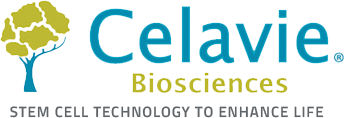U.S. Patent Issued to Celavie Biosciences for Novel Method of Pluripotent Stem Cell and Neural Progenitor Cell Propagation
Innovation advances applications of stem cells in regenerative medicine sector
OXNARD, Calif., Dec. 15, 2009—The U.S. Patent and Trademark Office issued a patent to regenerative medicine company Celavie Biosciences LLC for novel propagation and transplantation methods of pluripotent stem cells (PSC) and neural progenitor cells (NPC) with applications for therapeutic, diagnostic, and research purposes in the treatment of degenerative diseases.
U.S. Patent No. 7,632,681, “Compositions and methods for propagation of neural progenitor cells,” provides compositions and methods for isolation, preparation, growth, cryopreservation, differentiation, and transplantation of stem and neural progenitor cells.
The technology originated with the theory that undifferentiated stem cells are able to react to the micro-environment into which they are injected and mature into multiple cell types dictated by their new surroundings. Unlike commonly used pre-differentiated cells, this would allow the undifferentiated cells to address diseases with complex, multifactorial deficiencies in their entirety.
Using the latest technological breakthroughs, Celavie can produce large banks of undifferentiated cells with uniform qualities utilizing closed-system bioreactors. The cells are grown in a specialized medium that allows them to maintain their sterility and genetic stability over the course of the manufacturing process.
“Safety and viability are vital metrics in determining the success of stem cell-based regenerative therapies,” said Celavie CEO and President Sandy Solmon, who is also the lead investor. “These cells exhibit short doubling times and can be maintained in vitro for extended periods, which has profound impacts for the treatment of disorders of the central nervous system, like Parkinson’s disease.”
Therapeutic use of Celavie’s neural progenitor cells can be applied to degenerative, demyelinating, excitotoxic, neuropathic, and traumatic conditions of the central nervous system. Examples of conditions that can be treated via NPC grafts include, but are not limited to, Parkinson’s disease (PD), Huntington’s disease (HD), Alzheimer’s disease (AD), multiple sclerosis (MS), amyotrophic lateral sclerosis (ALS), epilepsy, stroke, ischemia, and other CNS trauma.
Neural progenitor cells cultured in accordance with the invention have been successfully transplanted into the brain, providing restoration of structure and function in an animal model of Parkinson’s disease. Moreover, the same culture conditions used to propagate NPC have also been shown to cultivate PSC that express the stem cell marker, Oct4.
Celavie’s focus on regenerative medicine addresses a large global need for which there are no effective treatments or cures today. Representing over six percent of the global burden of disease, neurological disorders are cited by the World Health Organization as one of the greatest threats to public health, affecting one billion people in all countries, irrespective of age, sex, education, or income. An estimated six million people suffer from Parkinson’s disease alone, and 200 million from neurological injuries, with those numbers estimated to increase considerably in years to come as populations rise.
###



